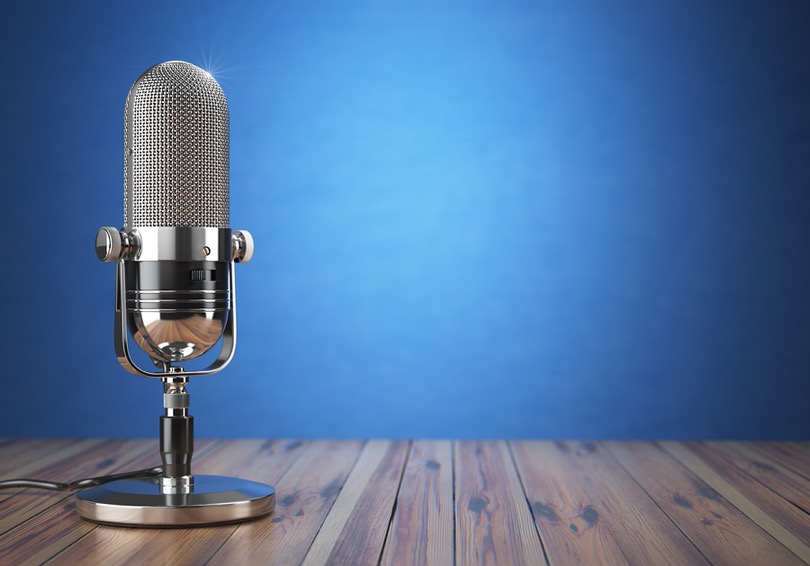Open source, open standards — it shouldn’t come as a big surprise that we’re strong supporters of open technology, after all the foundations of Android is open source. Unfortunately, for the capitalist machine open and interoperable normally is at odds with the drive to extract more cash from the planet’s population.
Case in point, Spotify has signed on Joe Rogan and his ‘The Joe Rogan Experience’ podcast as a Spotify exclusive. What does that mean? It means that by the end of the year Joe Rogan’s podcasts will not be freely available via RSS on the podcast player of your choice, it will only be available via Spotify.
Additionally, he will be closing down the full video feed to YouTube, while the YouTube channel will remain it will no longer host the full episode video. To get that you will need to go to Spotify’s new vodcast section in the app. To be clear Spotify currently is not charging for either the podcast or vodcast, it’s just being locked behind their walled garden.
This isn’t about Rogan or his podcast, I never knew it existed and I’m not about to start listening, what I just heard isn’t my cup of tea, I’m more a TWiT man myself. I wish him and his probable huge piles of money well but this is about a potential future that this takes us several steps towards.

Spotify has made a first move to break apart the open ecosystem, this was widely feared when they purchased Gimlet media in 2019. It’s clever that Spotify did not move one of their podcasts first, it reduces the attack surface for any anti-competitive claims: they don’t own Rogan or his show, but they now own the exclusive rights to distribute it, that’s just like TV right?
Why are we so worried? The first step in moving towards a closed ecosystem is to get people behind your wall. Thought experiment time. Imagine you’re a user and lover of the PocketCasts app: you should be it was made Downunder! Now imagine your favourite podcast gets moved to Spotify, it’s only one podcast, you like the podcast so you give in and download the app, get a free ad-supported data-collecting account and start to listen, happy times if a little annoying.
Now imagine tens of millions of other people did the same thing. Spotify just got a lot of new users, a lot more data and a lot more people to sell to advertisers. Now imagine Spotify signs another podcast, and another, and another. How long until more of your favourite podcasts are in Spotify’s walled garden? How long until you get sick of managing two download lists?
Then what’s next? You dump your podcast app because half of your content isn’t available there and move fully into Spotify. They get all of your data and your old favourite app is left to die. How many new users will pay to download a good app when most of the content is inaccessible from there? We will end up in a monotone, single UI, no choice world and for your podcast app, there’s no other option.

Of course, this thought experiment is missing one point. This is the first strike, others will strike back. Do you know how good messaging is? How interoperable, how you can group message from your device to all of your friends’ device using any client you like? Oh, that’s right, you can’t. Walled gardens have destroyed free and open messaging and now you have at least three messaging apps: I’ll wait why you count them.
Now imagine you have three podcast apps because to listen to the podcasts you want to you need to install the data-collecting, advertising-delivering apps associated with the content network that owns the rights to those shows. But wait there’s more. There is a very short walk from these hellscape nightmarish landscapes to free and open podcasts delivered by RSS dying off because the vast majority of the listeners are behind the walled gardens and the people who own those gardens start to act as gatekeepers.
If the majority of listeners are there, and the majority of podcast are there, that will give these networks power and influence over the advertising market and the podcast producers as well. Platforms like Spotify will harvest user data, how long people listened, where they skipped if they clicked on the embedded ad for some mail-order razor that won’t last and ends up being very expensive.
Advertisers want that data, they want to change how they pay for advertising on podcasts like the annoying Internet adds we all love so much. Ad tech versus podcasts, I guarantee you the listeners loose if the battlegrounds aren’t in the open.
And that brings us back to the open. A lot of media, especially podcasts are advertising supported. We are ad-supported. I don’t expect advertisers to blindly throw money away, value is a two-way street. What’s my solution? Honestly, I have no defence against the private market ambitions of a profit-driven company like Spotify.
Rest assured Spotify isn’t the only company who would want to do this, you just know Apple would love to bring more media into its walled garden, of course, there’s no such thing as a free tier in any Apple pricing. So if we can’t beat the walled gardens then the open has to compete.

The open podcast networks need to find a balance between providing value to advertisers so they keep some of their budgets on the open side of the wall, and user privacy, so people still actually listen. If an open advertising standard can be developed that allows podcast makers to provide some value back to advertisers then the walled gardens and open meadows just might be able to exist together, this would be a very difficult balance to strike, and there is no solution to make everyone happy.
To achieve this would be technologically difficult, and socially even more difficult. RSS is a one-way street. Essentially every open podcast player would have to comply with some sort of data collection standard to allow for aggregated data to flow back to creators, or creators would need to distribute on some sort of open platform, which would be in effect another walled garden, just a community-run one.
Could this mean the end of RSS as the underlying technology for podcasts? Can it be uplifted? Adapt or die is a common mantra in technology. I truly hope the open podcast standards can adapt because I don’t want them to die.
I’m not going to make some bold claim about boycotting podcasts who move behind walled gardens, I understand content creators looking for a reliable business model, microphones aren’t free you know.
However this plays out there will always be a niche market for some types of podcasts, community support crowdfunding mechanisms exist and some are thriving. Nothing is ever absolute, however, there is a real risk of breaking what is great about podcasts in general if threats like Spotify’s walled garden aren’t addressed sooner rather than later.





No free Apple tier? How much does it charge for podcasts?
Fellow TWIT listener here, love the shows. I stopped using Spotify when they removed the music library function and put the “liked songs” there in its place. Their reasoning? They wanted people to use playlists instead.
At least I can take solace in knowing Leo would never restrict access to his content and seeing that its really the only podcasts I listen to I really have nothing to worry about for now.
Great read and I agree with almost every point made.
It’s more likely going to move in the multiple walled gardens direction. Apple will definitely be making plays in the podcast exclusivity space and other music streaming services are likely to follow suit.
As a more likely market direction, I completely agree, Spotify lacks the cash to compete with the really big players. It’s also interesting to wonder what role Google see’s themselves playing. As an advertising company, it’s in their interest to either dominate the market, and deal with more antitrust probes, or provide the ad platform for an “open market”.
I’m not sure this translates particularly cleanly into an argument about walled gardens vs open delivery/syndication – it’s about different revenue models: content producers relying on personal ad revenue vs getting a paid publishing deal. It’s like a YouTube content creator having their show picked up by Netflix or HBO, but with podcasts.
So, good points and I would image this is Spotifys plan. The issue with this: Too much content available! Second problem: They are paying a shite load (if reports are true) to lock up Joe and stop him podcasting (because, once he moves exclusively to Spotify it stops being a podcast)! The next podcaster they want to stop podcasting is going to expect that they also give them a shite load of money as well! They need to make that money back. Third issue: Other apps have other benefits. So part of this spotify play is not trying to get… Read more »
I hope you’re right. The risk is they don’t need all the podcasts, just enough of the higher ranking ones that the advertisers follow. There will be a point at which to get advertising funding you will need to provide data, and if a standard isn’t developed then podcasters will have to move behind the walls. The other hell landscape is the advertisers’ design the data standard and independent podcasters have to use it, think tracking cookies for podcasts. I most scenarios what we need is action from the independent podcasters to evolve and understanding from the audience that there… Read more »